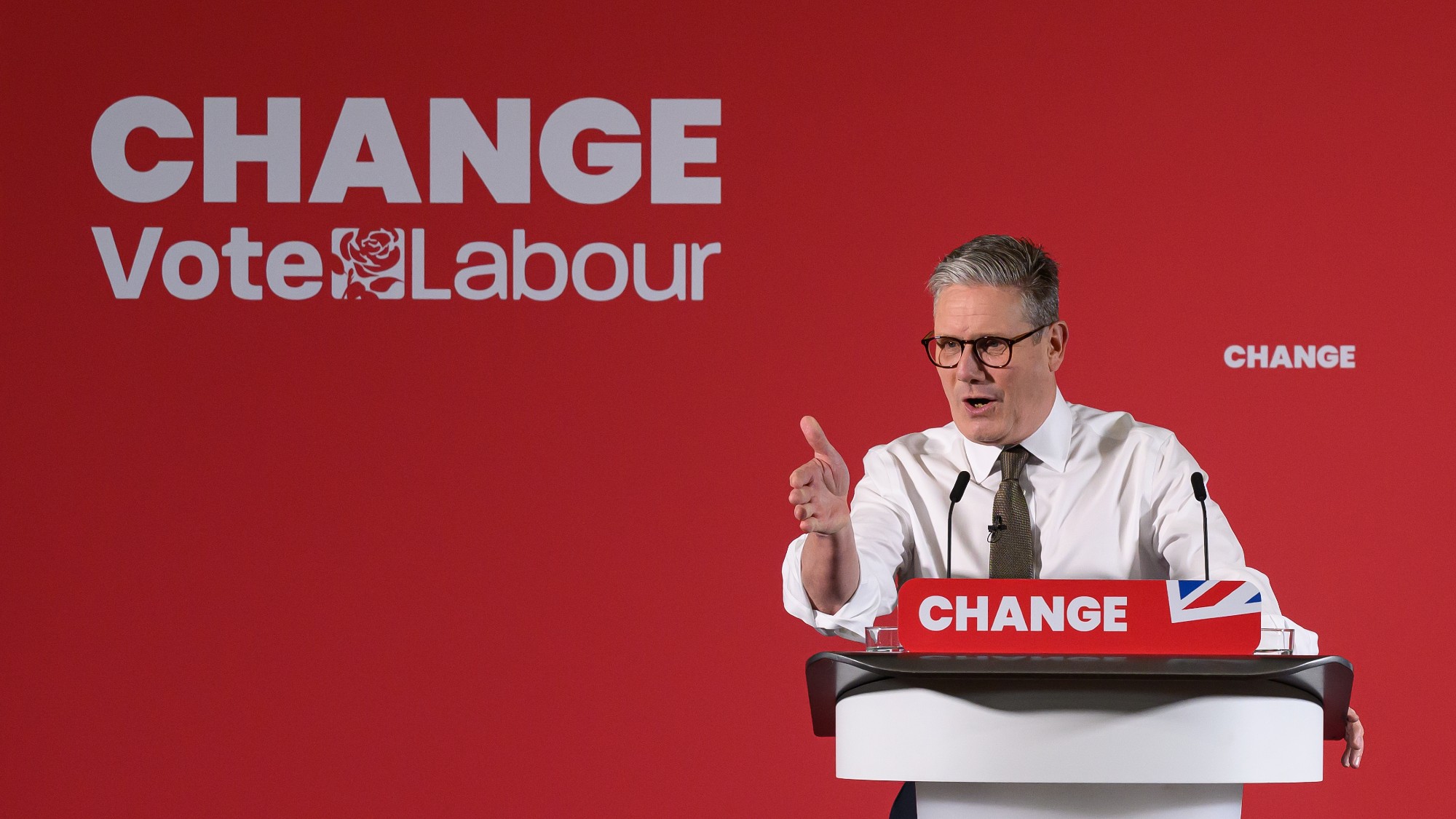Does Labour have a cronyism problem?
Labour accused of creating a 'chumocracy by stealth' through civil service appointments

A free daily email with the biggest news stories of the day – and the best features from TheWeek.com
You are now subscribed
Your newsletter sign-up was successful
Labour is facing allegations of cronyism after appointing several of its backers to prominent civil service roles.
Ian Corfield, a former banker who has donated over £20,000 to Labour politicians, including £5,000 to Shadow Chancellor Rachel Reeves, was appointed to a Treasury post after the Civil Service Commission approved an "exception" to the usual requirement of fair and open competition for the role. But the regulator "was reportedly not told of his financial contributions to the party", said The Times. Corfield has now stepped down and become a temporary, unpaid Treasury adviser.
In another case, Jess Sargeant, who previously worked for the Labour Together think tank, was appointed deputy director in the Cabinet Office's propriety and constitution unit. And Emily Middleton, a former consultant whose secondment to Labour during its opposition days was funded by a donation, has been appointed as a director general in the Department for Science, Innovation and Technology.
The Week
Escape your echo chamber. Get the facts behind the news, plus analysis from multiple perspectives.

Sign up for The Week's Free Newsletters
From our morning news briefing to a weekly Good News Newsletter, get the best of The Week delivered directly to your inbox.
From our morning news briefing to a weekly Good News Newsletter, get the best of The Week delivered directly to your inbox.
Further fuelling the controversy, it was revealed on Sunday that Lord Waheed Alli, a major Labour donor who has contributed £500,000 to the party – including £16,200 worth of work clothing and £2,845 worth of glasses for Keir Starmer – was granted a temporary pass to Downing Street.
What did the commentators say?
"Every new government, regardless of party, arrives in Whitehall with the same ambition" to cut through Whitehall bureaucracy, said The Times in a leading article. And while Starmer is "proving no different", Labour's method of "bending the civil service to its will" has left it "vulnerable to accusations of cronyism".
To say so is "not to question the professional credentials" of Ian Corfield or the other Labour backers appointed to roles, and indeed, "this newspaper has long argued that the civil service – too often bloated and sclerotic – would benefit from more external expertise". However, for Starmer, who has long criticised the "degradation of standards in public life" and blamed Conservatives for the decline in public trust, "the real problem is the means, not the ends." None of these controversial appointments were subject to open recruitment processes; instead, they were "imposed on departments by fiat." While Labour ministers should argue for a system that allows them to appoint trusted expert advisers, voters deserve more than a "chumocracy by stealth".
Indeed it "undermines the principle of merit – core to an impartial civil service – if ministers appear to freely give jobs to political allies without fair and open competition", argued the Institute for Government. "The exceptions process should be just that – exceptional," rather than "a back door for political appointments". An impartial civil service "is an asset to ministers and the country," and bypassing recruitment practices designed to ensure merit-based appointments "is a mistake".
A free daily email with the biggest news stories of the day – and the best features from TheWeek.com
"What is more striking is that many in the party seem surprised, and in some cases slightly offended, that these appointments and decisions are facing even light criticism," said Katy Balls in The Spectator. Speaking on Times Radio, the former Labour MP Harriet Harman played down issues over Corfield's donations, saying that the sum "probably seems like a small amount of money for him but for everybody else that seems like a lot of money". It's "hard to see Harman making that defence had it been a Tory donor being given an appointment", said Balls.
In Labour circles, there is "frustration that the summer recess has been dominated by these stories", Balls added. And while some hope "that stories about the inner workings of Whitehall have limited cut-through" others "worry about a 'drip-drip' effect".
What next?
Addressing reporters after making a major speech today, the prime minister dismissed allegations of cronyism, telling reporters he wanted "honesty and integrity" in his government, and "the right people in the right places".
He added: "Most of these allegations and accusations are coming from the very people that dragged our country down in the first place."
As opposition leader, Starmer frequently criticised "Tory sleaze" and, in his first speech as prime minister, promised a "return of politics to public service". Now the recent controversies could lead to accusations of hypocrisy, warned Sir Alistair Graham, a former chairman of the Committee on Standards in Public Life, speaking to the i newspaper.
"The danger for this government is that people might say they're no different to the last lot," he said. "And if people start to say that or think that on a broad basis then that would be dangerous for their future survival."
Sorcha Bradley is a writer at The Week and a regular on “The Week Unwrapped” podcast. She worked at The Week magazine for a year and a half before taking up her current role with the digital team, where she mostly covers UK current affairs and politics. Before joining The Week, Sorcha worked at slow-news start-up Tortoise Media. She has also written for Sky News, The Sunday Times, the London Evening Standard and Grazia magazine, among other publications. She has a master’s in newspaper journalism from City, University of London, where she specialised in political journalism.